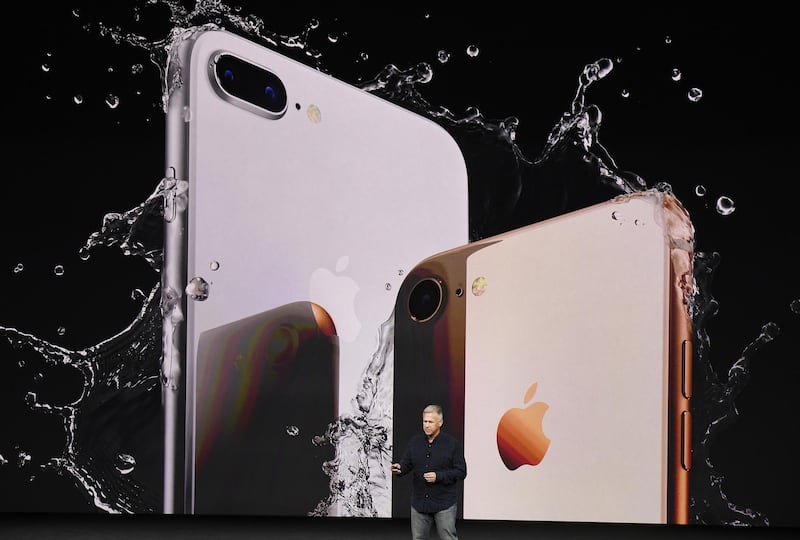Apple won $539 million from Samsung in the final throes of the two multinational giants’ court struggle over smartphone technology, seven years after the start of a global patent battle.
The iPhone maker sought $1 billion in the retrial of a case that originally produced a verdict of that amount in 2012, while its South Korean competitor argued it should pay only $28m this time.
It was already established that Samsung infringed three of Apple’s design patents - covering the rounded corners of its phones, the rim that surrounds the face, and the grid of icons that users view - and two utility patents, which protect the way something works and is used.
“Today’s decision flies in the face of a unanimous Supreme Court ruling in favour of Samsung on the scope of design patent damages,” the South Korean company said in a statement after the verdict.
“We will consider all options to obtain an outcome that does not hinder creativity and fair competition for all companies and consumers.”
John Quinn, a lawyer for Samsung, told the judge the verdict isn’t “supported by the evidence,” and that the company would raise its objections.
Apple said in a statement that the case “has always been about more than money”.
“We believe deeply in the value of design, and our teams work tirelessly to create innovative products that delight our customers,” the company said.
_________________
Read more:
WhatsApp co-founder Jan Koum leaving Facebook
Facebook needs to quickly earn back the trust of users
_________________
The basic question for the jurors in San Jose was: Should Samsung have to pay damages based on sales of its smartphones or just the components that infringed its US competitor’s patents?
A $1.05b jury verdict in 2012 was whittled down by a previous retrial in 2013, along with appeals and adjustments.
After Samsung agreed to pay some damages, the case went to the US Supreme Court in 2016 and was returned to District Judge Lucy Koh with an order to revisit $399m of that award.
Now Samsung has to pay an additional $140m.
The verdict is a “big win”, said Michael Risch, a law professor at Villanova University School of Law in Pennsylvania.
“Apple’s upside should have been capped at what it won before,” he said.
“Beating that number at trial is a huge victory given that the Supreme Court has theoretically ruled against it.”
That also makes it a “huge loss” for Samsung, “and shows the risk it took by continuing to fight,” he said.
“Samsung’s luck with the jury ran out this time, and Apple received a bigger proportion of what it sought.”
The Apple verdict is the third largest US jury award in 2018 so far, according to data compiled by Bloomberg.
It’s the biggest damages award for a patent case this year, followed by a $502.6m verdict that Apple lost in Texas to VirnetX in April.
Samsung earned $38.9m in profit each day, or $1.6m per hour, from sales of its mobile devices based on its most recent quarterly earnings, with a chunk of that coming from sales of its smartphones.
That means the single division of the firm could pay Apple in about two weeks.
The technology landscape has shifted significantly since the 2012 trial.
Apple has expanded its iPhone lineup to include more expensive as well as cheaper models.
The company has also revamped the handset’s interface with new icons, colours and gestures.
Samsung has added new models with curved screens and iris scanners that Apple has ignored.
The two companies remain far ahead of the competition globally, but, while Apple's market share has remained steady, Chinese phone makers like Huawei and Oppo have begun to eat into Samsung’s profits.






